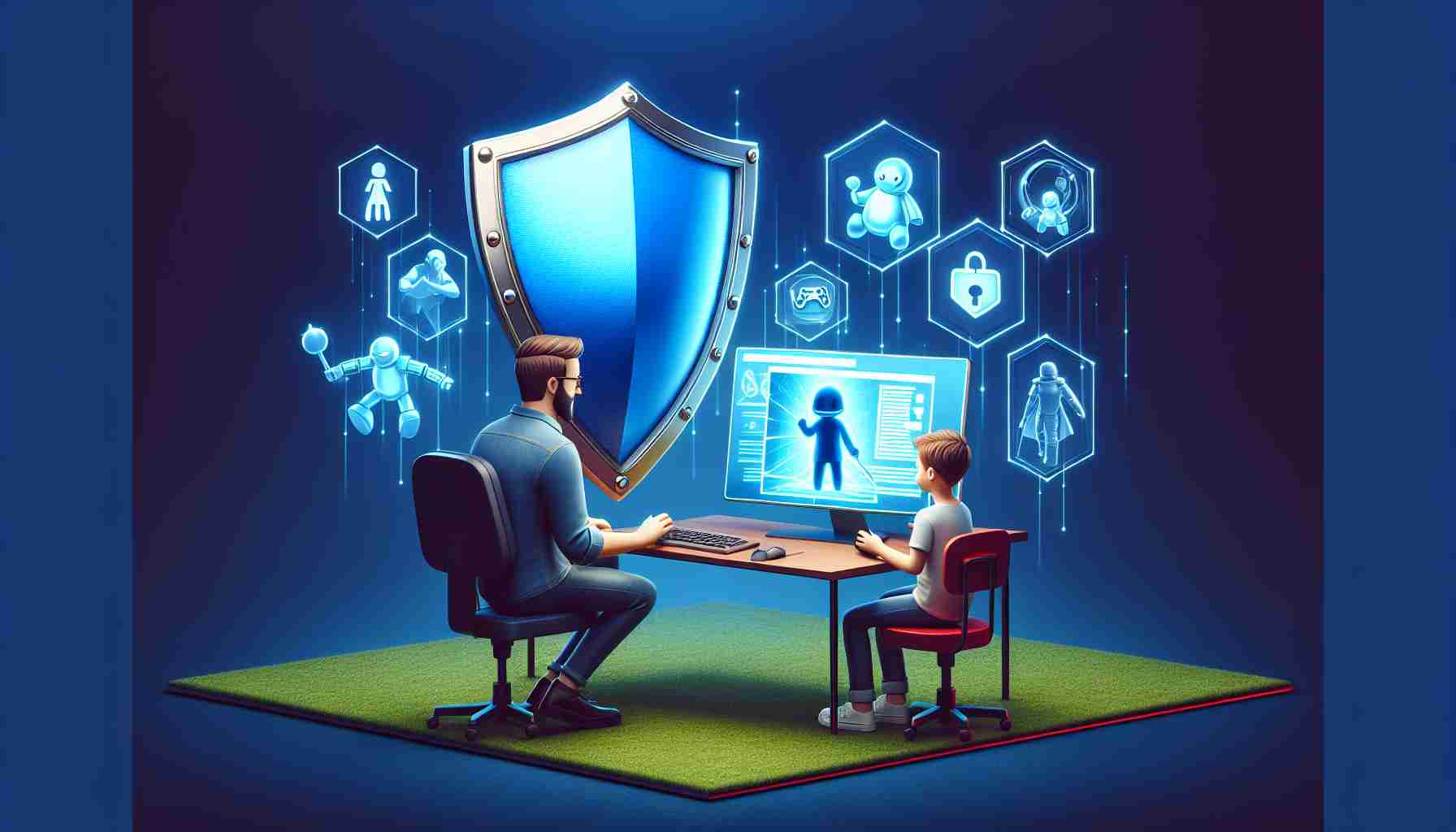The popularity of online gaming among children is on the rise, and with it comes the concern of parents regarding the potential risks and dangers their children may face. It is important for parents to stay vigilant and take the necessary steps to ensure their child’s safety while they indulge in their favorite games.
Screen time has become a significant issue in today’s digital age. Excessive gaming can lead to addiction and other health problems. It is crucial for parents to monitor and manage their child’s screen time. Setting limits, encouraging breaks, and promoting other activities like outdoor play and reading can help maintain a balanced lifestyle and reduce the negative impacts of excessive screen time.
Another area of concern is in-game microtransactions, which can be a source of financial worry for parents. By enabling parental controls, parents can monitor their child’s gaming experience and prevent unexpected charges on their credit cards. Education about the risks of in-game purchases can help children make informed decisions and avoid potential troubles.
Understanding the different content ratings for games is essential for parents. Organizations like PEGI provide age classifications that guide parents in ensuring their children are not exposed to violent or inappropriate content.
Voice chat settings in online games should also be reviewed. Parents should take the time to adjust privacy controls and limit communication to friends only. This helps protect children from interacting with strangers and reduces the risk of exposure to harmful elements.
Cyber-bullying is another concern in the online gaming world. Educating children about online etiquette and safety is crucial. Parents should teach their children about respectful behavior and the dangers of sharing personal information online. Encouraging children to report abuse through in-game reporting features and to a responsible adult can help combat cyber-bullying.
In addition to emotional well-being, parents should also consider their child’s physical health. Implementing eye safety measures is essential during prolonged gaming sessions. Encouraging breaks and following the 20-20-20 rule (looking at something 20 feet away for 20 seconds every 20 minutes) can help reduce eye strain. Proper lighting and the use of blue light filters or gaming glasses can also alleviate temporary discomfort.
In conclusion, as online gaming continues to grow in popularity, it is important for parents to be proactive in protecting their children from potential risks. By monitoring screen time, enabling parental controls, understanding content ratings, reviewing voice chat settings, educating about cyber-bullying, and promoting eye safety measures, parents can create a safer gaming environment for their children.
Additional facts:
– The global online gaming market was valued at $162.32 billion in 2020 and is expected to reach $295.63 billion by 2026, indicating the increasing popularity of online gaming among children and adults alike.
– Online gaming platforms often have age verification systems in place to ensure that children are not accessing games meant for older audiences. However, these systems are not foolproof, and some children may still be able to access inappropriate content.
– Online gaming can provide educational benefits, such as improving problem-solving skills, hand-eye coordination, and teamwork. Many educational games are available that can enhance learning in various subjects.
– Virtual reality (VR) gaming is becoming increasingly popular and immersive. It offers a unique gaming experience but also poses additional concerns for parents, such as motion sickness and limited awareness of the physical surroundings.
– Online gaming can expose children to online predators who may try to exploit their vulnerability. Parents should educate their children about the importance of not sharing personal information and report any suspicious behavior.
– The phenomenon of “loot boxes” in games has sparked controversy. Loot boxes are virtual items that players can purchase, but the contents are randomized, leading to concerns of gambling-like behavior among children.
– Online gaming addiction is recognized as a mental health disorder by the World Health Organization (WHO). It is important for parents to be aware of the signs of addiction and seek help if necessary.
Key questions and answers:
1. How can parents effectively monitor their child’s screen time?
– Parents can make use of parental control apps and software to track and control their child’s screen time. They can set time limits, restrict access to certain apps or websites, and monitor overall usage.
2. How can parents prevent unexpected charges from in-game microtransactions?
– By enabling parental controls on gaming platforms, parents can ensure that their child cannot make purchases without their permission. They can also have open discussions with their child about the risks and consequences of spending money on in-game purchases.
3. What are some signs that a child may be experiencing cyber-bullying in online games?
– Changes in behavior, sudden withdrawal from social activities, reluctance to open up about their online experiences, or signs of distress after gaming sessions could indicate that a child is being bullied online.
Challenges and controversies:
– Balancing the child’s desire to play online games with the need for healthy screen time limits can be a challenge for parents.
– The effectiveness of age verification systems on online gaming platforms is debated, as some children may still be able to access inappropriate content.
– The impact of violent content in online games on children’s behavior is a subject of ongoing debate among researchers and experts.
– The connection between excessive online gaming and mental health issues, such as depression and anxiety, is a controversial topic. Some argue that gaming provides an outlet for stress and social interaction, while others warn of detrimental effects.
Advantages and disadvantages:
Advantages:
– Online gaming can foster creativity, problem-solving skills, and teamwork.
– Educational games can enhance learning in various subjects.
– Online gaming provides a platform for social interaction and connecting with friends or other players from around the world.
Disadvantages:
– Excessive screen time and sedentary behavior can contribute to physical health problems, such as obesity and eye strain.
– Online gaming can expose children to inappropriate content, cyber-bullying, and online predators.
– In-game purchases and loot boxes can lead to financial concerns and gambling-like behavior.
Suggested related links:
– Common Sense Media – Provides ratings, reviews, and advice on age-appropriate media for children, including online games.
– FOSI (Family Online Safety Institute) – Offers resources and tips for parents on protecting children in the digital world, including online gaming safety.
– PEGI (Pan European Game Information) – Provides age classifications and content descriptors for video games in Europe, helping parents make informed decisions about game suitability.


















